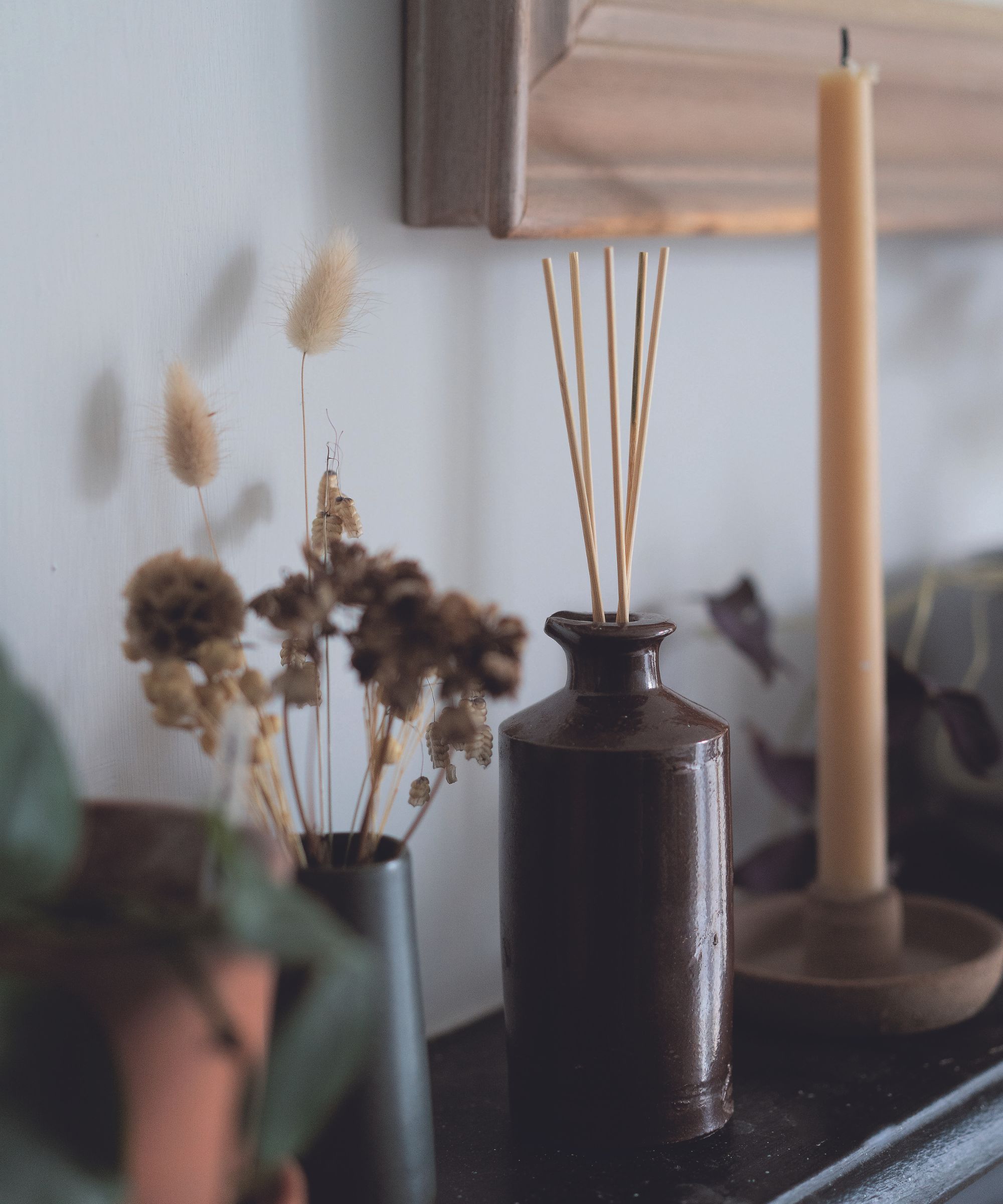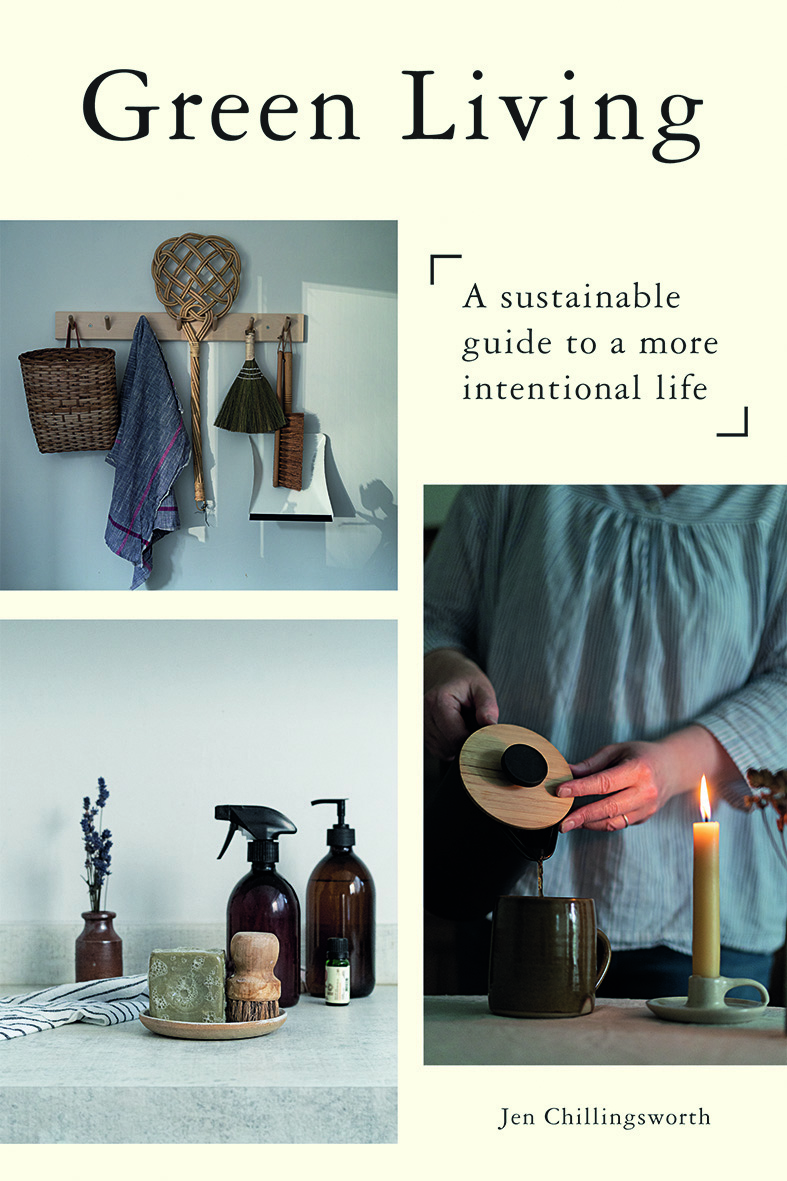How to make a reed diffuser – with essential oils
It's really easy to make a reed diffuser yourself. Here, author Jen Chillingsworth tells us how, including how to make reed diffuser oil


Design expertise in your inbox – from inspiring decorating ideas and beautiful celebrity homes to practical gardening advice and shopping round-ups.
You are now subscribed
Your newsletter sign-up was successful
Want to add more newsletters?

Twice a week
Homes&Gardens
The ultimate interior design resource from the world's leading experts - discover inspiring decorating ideas, color scheming know-how, garden inspiration and shopping expertise.

Once a week
In The Loop from Next In Design
Members of the Next in Design Circle will receive In the Loop, our weekly email filled with trade news, names to know and spotlight moments. Together we’re building a brighter design future.

Twice a week
Cucina
Whether you’re passionate about hosting exquisite dinners, experimenting with culinary trends, or perfecting your kitchen's design with timeless elegance and innovative functionality, this newsletter is here to inspire
Making a reed diffuser at home isn't just quick and easy, it's also a good way to ensure you get the fragrance mix you want just right while ensuring all the ingredients are eco-friendly.
Here, author, photographer and blogger Jen Chillingsworth shows how the best reed diffusers can be made at home.
'A simple and effective way to scent your home is to make your own reed diffuser using essential oils,' says Jen. 'These diffusers can be safely left to release a gentle fragrance over time. Citrus oils are ideal as they have a light scent that is both fresh and reviving. Alternatively, lavender is relaxing and perfect for bedrooms.'

Jen Chillingsworth is the author of Green Living: A Sustainable Guide to a More Intentional Life. Green Living is follow up to her best-selling book Live Green. Her second book is a practical guide to living life more thoughtfully, and includes a collection of changes you can make to your home and lifestyle over the course of a year, from making your own cleaning products to giving up plastic.
How to make a reed diffuser

Reed diffusers are one of the best ways to make your home smell nice. Below, we take you through the simple process of making a reed diffuser. This will make one reed diffuser bottle, but you can easily multiply the ingredients to make more, adjusting the reed diffuser oil mix as you go to suit the spaces.
You will need:
- 1 small glass bottle with a narrow neck (Ed: Amazon sells these reed diffuser bottles)
- 3-5 bamboo skewers (or use natural fiber diffuser reeds) (Ed: Amazon sells these natural rattan diffuser reeds)
- Scissors
- 125ml sweet almond oil (Ed: Amazon sells this organic sweet almond oil)
- 30 drops essential oil (if using a blend, divide by the number of oils you are using, eg, 15 lavender, 15 lemon) (Ed: This organic essential diffuser oils set is Amazon's top seller)
1. Rinse the reed diffuser bottle
Wash the bottle in warm, soapy water. Rinse, then leave to air dry.
2. Make the reed diffuser oil
Pour the almond oil into the bottle. Add 30 drops of your chosen essential oil or blend.
Design expertise in your inbox – from inspiring decorating ideas and beautiful celebrity homes to practical gardening advice and shopping round-ups.
3. Insert a single reed
Using the scissors, remove the pointy end from each bamboo skewer. Insert one bamboo skewer into the bottle and stir to combine.
4. Put in the remaining skewers
Pop the remaining skewers into the bottle and leave for several hours.
5. Display the finished result
Lift all three skewers out, turn them upside down and place the unscented ends into the bottle, leaving the scented ends on display.
6. Repeat and refresh
Repeat this last step every two to three days. Refresh the oil and essential oils once a month.
How do you make reed diffuser oil?
Mix favorite blends, such as chamomile and orange, eucalyptus and lemon, rose geranium and lavender, rosemary, sage and lavender with your carrier oil until you have the right fragrance blend and strength to suit your senses.
What is the best carrier oil for reed diffusers?
Author of Green Living Jen Chillingsworth recommends using sweet almond oil as the best carrier oil for reed diffusers, though you can also use fractioned coconut oil or safflower oil.

Lucy Searle has written about interiors, property and gardens since 1990, working her way around the interiors departments of women's magazines before switching to interiors-only titles in the mid-nineties. She was Associate Editor on Ideal Home, and Launch Editor of 4Homes magazine, before moving into digital in 2007, launching Channel 4's flagship website, Channel4.com/4homes. In 2018, Lucy took on the role of Global Editor in Chief for Realhomes.com, taking the site from a small magazine add-on to a global success. She was asked to repeat that success at Homes & Gardens, where she also took on the editorship of the magazine. Today, Lucy works as Content Director across Homes & Gardens, Woman & Home, Ideal Home and Real Homes.